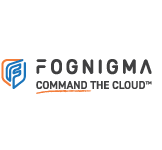When you send a message to a coworker or collaborator within a certain professional setting, most of the time, you assume this communication is secure. However, you’d be surprised that a lot of communication that goes on in the digital world is often accessed by outside hackers. Every call, message, email, and more is at risk. What can you do? Luckily, companies like Fognigma can help keep these things secure and protected with an encrypted telephony solution called Holler. Holler isn’t just your standard telephony system. It’s a purpose-built platform designed to conceal your number, identity, and call details, making sure your organization has complete privacy for every interaction. Read on for more on how Holler can help your organization’s overall communication.
What is Phone Encryption, and Why Does It Matter?
Let’s get down to the basics: “What is phone encryption?” So, encryption, in general, is something that a lot of developers or IT professionals claim is the backbone of securing online information. It’s basically a specific code or unreadable format that can only be deciphered by authorized people. With encryption on a phone system, details like phone numbers, call logs, and audio content are protected from unauthorized access. Is this really a big deal? In places like the military, yes. If calls or any form of communication fall into the wrong hands, this information can compromise personal privacy, business strategies, and even national security. Phone encryption isn’t just about compliance or peace of mind; it’s a critical component of modern communication.
Holler Features for Misattributed Telephony
Holler is more than just being able to conceal your phone number. It’s a secure communication tool. Fognigma is here to show you some of its features that combine help with overall privacy capabilities. Below are some of the most beneficial ones:
Anonymity & Misattribution
Holler disassociates the caller from the receiver, ensuring that no direct link can be traced. By using disposable SIP numbers as intermediaries, true phone numbers are never revealed. Whether it’s SMS forwarding, persona calling cards, or establishing secure call chains, Holler makes sure that anonymity is maintained at every step.
Can Work on Any Type of Device (BYOD-Friendly)
Unlike other solutions that require complicated software installations, Holler is Bring Your Own Device (BYOD)-friendly. It works seamlessly with any computer, phone, or virtual desktop infrastructure (VDI) equipped with softphone software. This flexibility allows businesses to integrate misattributed telephony across their existing devices without complex deployments.
Reach People All Over the World
Holler’s use of SIP numbers from up to five providers enables global communication. Whether you’re in the U.S., Belgium, or anywhere else, you can make and receive calls through localized numbers that create an authentic presence while protecting your identity.
User-Friendly with Effective Administration
With Holler, managing encryption and secure telephony is effortless. Administrators can configure secure call chains and other misattributed telephony features in under a minute, and if a number is compromised, it can be instantly replaced.
You Don’t Need Any Additional Hardware for Set Up
Don’t worry about having extra phones, new devices, or different programs to run Holler. Holler is easy to set up and can integrate into your already existing infrastructure so that you’re able to text or call anyone instantly, all while remaining anonymous.
How Holler Can Conceal Your Phone Number and More
Holler is great for real-world situations. It isn’t just a way to conceal your phone number. It can do so much more. Here’s a scenario in which Holler can help organizations protect communications that most deem crucial to protect:
A U.S.-based organization must communicate with an agent in Belgium, located in a high-risk, unsecured environment. Direct communication could expose both the agent and the organization to significant risks.
Holler safeguards this scenario step by step here:
- Admin creates a secure SIP chain via the Holler interface, entering their own number, the agent’s number, and a set of intermediary SIP numbers.
- Admin dials the first SIP number to activate the chain.
- The call is securely rerouted through the intermediary SIP numbers.
- The agent receives the call securely without any exposure to personal or organizational details.
Top Benefits of Holler’s Encryption for Security and Privacy
The reason why Holler’s encryption is one of the best is that your organization can have complete anonymity. Holler is able to conceal phone numbers while also using disposable SIP numbers. This makes it perfect for receivers and callers to continue to be untraceable no matter what. Also, Holler is able to encrypt call logs and make sure that secure telephony occurs without any extra downloads or installations. The last thing most people want is to have to install multiple programs to get something like Holler up and running. It’s good to know that Holler is user-friendly and super simple to install, so it saves you time in the setup process. Finally, Holler is great for privacy because of the worldwide secure text or calls feature. So many organizations need to communicate globally, and Holler lets them do just that, all while being under the radar.
Summary of Why to Choose Holler
Holler combines flexibility, innovation, and powerful encryption into one easy-to-use platform. It can make sure organizations have privacy while minimizing traceability risks and support easy global communication, making it the best choice for secure telephony. With today’s growing security threats, protecting sensitive communications is essential. Holler prioritizes privacy without compromise, giving businesses the confidence to operate securely. Redesign and transform how your organization approaches communication security. Contact Fognigma today to learn how Holler can protect your sensitive conversations and simplify secure telephony.




